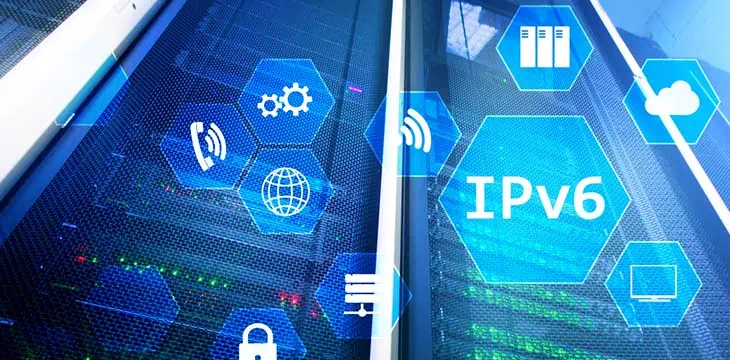|
Getting your Trinity Audio player ready...
|
Innovation enhanced by IPv6 will add over $7 trillion to the global GDP in the next two years, a new report on the most recent version of the Internet Protocol states.
The Global IPv6 Development Report 2022 by German consultancy Roland Berger delved into how IPv6 will impact the development of other emerging technologies, from cloud computing to 5G, and the value they will create globally.
Global IPv6 Development Report 2022
In 2025, it is estimated that the total industry value brought by IPv6 Enhanced Innovation will reach 7.3 trillion US dollars.https://t.co/wLXUGu0gHX
Download full document:https://t.co/MTfmqsLo0o
— Latif Ladid (@Latifv6) August 28, 2023
The internet has become primary to our lives, and with it has come a surge in demand for IP addresses. Cloud computing, the Internet of Things (IoT), 5G, and other emerging technologies have increased the number of interconnected devices. Studies show that there will be over 41 billion devices by 2030.
All these factors have made IPv6 critical to the future of the internet, says Bing Li, a partner at the Munich, Germany-based consulting firm.
“Digital technology is powering the future of the world. IPv6 will be the fundamental enabler for digital economy transformation, improved social governance and well-being for all,” he stated.
According to the Roland Berger report, which references documents of IPv6 Forum, manufacturing is the industry set to gain the most at $1.85 trillion. IoT is the technology that will most impact manufacturing, and IPv6 will improve IoT security and efficiency. IoT integration in manufacturing will result in smart manufacturing, remote operation, and better product visualization.
Public services and utilities, information and communication, professional services, finance, and real estate are the other sectors set to make significant gains from IPv6 integration.
Globally, India leads in IPv6 integration. Belgium, Finland, Germany, and Greece are the other major global hubs.
India’s IPv6 exploits are as much about the country’s innovative nature as they are about necessity. With IPv4 being limited on IP addresses, India is among the countries that need IPv6 the most. IPv6 Forum’s Satya Gupta stated earlier this year, “If 1 billion people each have ten devices, we will need 10 billion IP addresses.”
Blockchain will play a key role in the IPv6 era. Bitcoin was designed with IPv6 in mind—Satoshi Nakamoto integrated direct transactions between IP addresses into Bitcoin’s original code. IPv6 restores this vision: Apart from having more IP addresses than grains of sand on earth, this version supports multicast and anycast addresses and comes with enhanced security and privacy features.
Watch IEEE Blockchain Symposium 2022 highlights: Building better internet with IPv6 and blockchain

 07-11-2025
07-11-2025 





